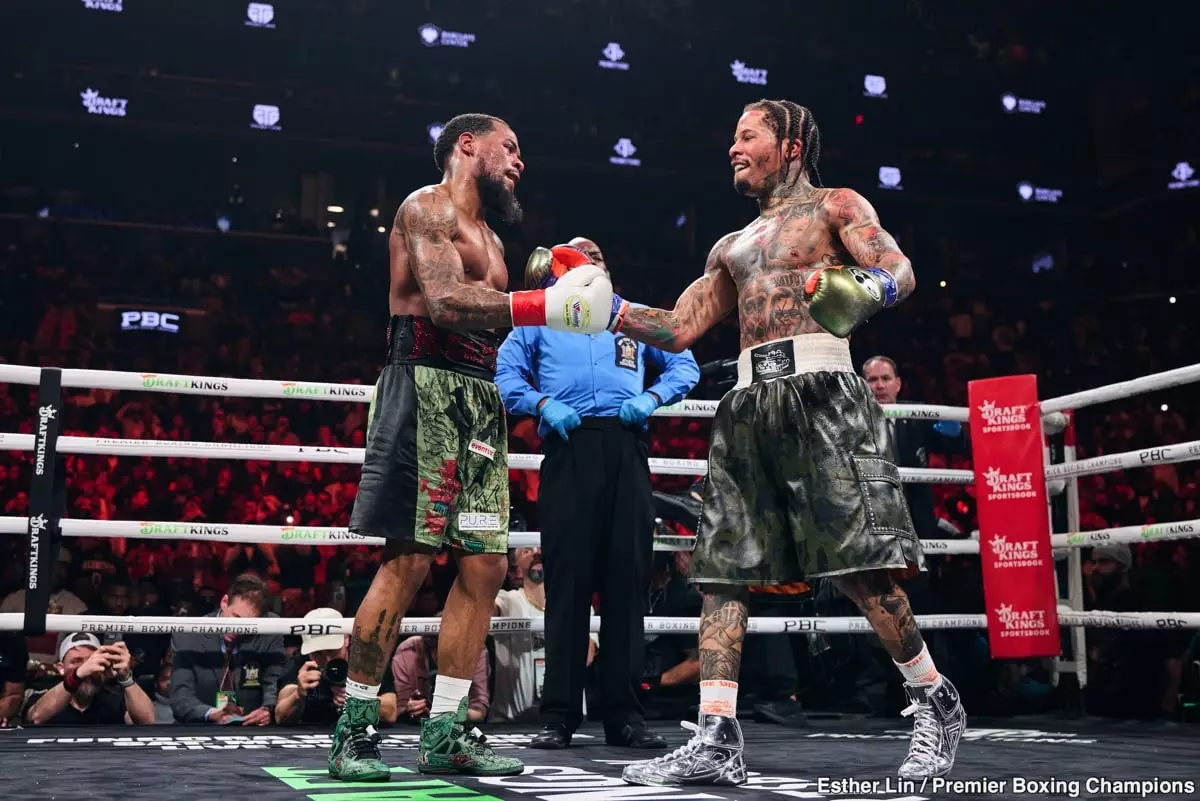In the world of boxing, the line between victory and defeat can often become a blur, creating fertile ground for controversy and debate. This was vividly demonstrated during the recent clash between Gervonta “Tank” Davis and Lamont Roach, a bout that concluded with a perplexing majority draw. Prominent promoter Eddie Hearn has stepped into the fray, expressing skepticism about the New York State Athletic Commission’s willingness to reverse the draw in favor of Roach. In a sport where every punch counts, the implications of this decision extend far beyond the void of a win or a loss.
The nature of the fight itself was contentious; many observers noted that an apparent knockdown in the ninth round was overlooked when Davis dropped to his knee as Roach’s punches rained down. Hearn’s assertion that this situation warrants rectification highlights a broader critique of officiating standards within professional boxing. The integrity of the sport hinges on accurate calls made in real-time, and in this instance, technology failed to assist the referees due to playback malfunctions. Such instances raise questions about the reliability of officiating and its impact on fighters’ careers.
Legal Maneuvers: Roach’s Pursuit of Justice
As the dust settles, Roach’s legal team is working diligently to appeal the fight’s outcome. They have lodged a formal request with the New York Commission, seeking not just recognition of a knockdown but a change in the fight’s final ruling. This is a critical move for Roach, who fights not only for his reputation but for the financial and symbolic implications that accompany a victory over a high-profile opponent like Davis.
Critics may argue that seeking a reversal of a close decision could open a Pandora’s box for the sport, leading to incessant appeals and disputes. Yet, in the realm of combat sports, where reputations are forged and lost in a matter of seconds, the fighters deserve every opportunity to have their legacies preserved accurately. The ramifications extend beyond Roach himself; they could set a precedent for how future disputes in boxing are resolved, potentially leading to a more transparent and just system.
The Popularity Dilemma
One of the most polarizing aspects of this situation is the popularity of Gervonta Davis. As a fan-favorite and a dynamic performer in the ring, changing the fight’s verdict to favor Roach could deeply unsettle many fans and insiders who view Davis as a burgeoning superstar in the sport. Hearn hints at this popularity being a barrier to change, stating, “Tank is a pretty popular fighter,” which could influence the Commission’s stance. This interplay between popularity and fairness in sports raises fundamental questions about the influence of marketability on decision-making processes in athletics.
Moreover, this scenario introduces an interesting dynamic: should fans’ emotional investments impact the integrity of contested verdicts? It presents a profound ethical dilemma within the sport, one that deserves serious consideration. Boxing thrives on the premise of fair competition and the skill displayed within the squared circle. When decisions appear biased or influenced by commercial interests, it could foster a growing disenchantment among purists within the fan base.
A Call for Rematch and Reflection
Regardless of how the appeals process unfolds, Hearn suggests that the dialogue surrounding this event could potentially serve as a wake-up call for Davis. After all, every fighter faces moments of introspection that can redefine their trajectories. Should the appeal succeed, it could pave the way for a rematch, allowing both fighters to leave ambiguity behind and earn a decisive result.
Such a rematch would not just be an opportunity for redemption but also a chance for Davis to further solidify his legacy by facing a formidable opponent again. For Roach, it could be the ultimate proving ground—a chance to assert his skill and tenacity in a more favorable scenario. The boxing world is rife with narratives of comeback and redemption, and this fight risks becoming another chapter in that storied legacy.
As a sport, boxing remains an intricate tapestry woven from tales of triumphs, defeats, and human resilience. The consequences of this bout’s aftermath will be felt for years to come, and how this situation unfolds could very well shape the narrative arc for both fighters involved.


Leave a Reply